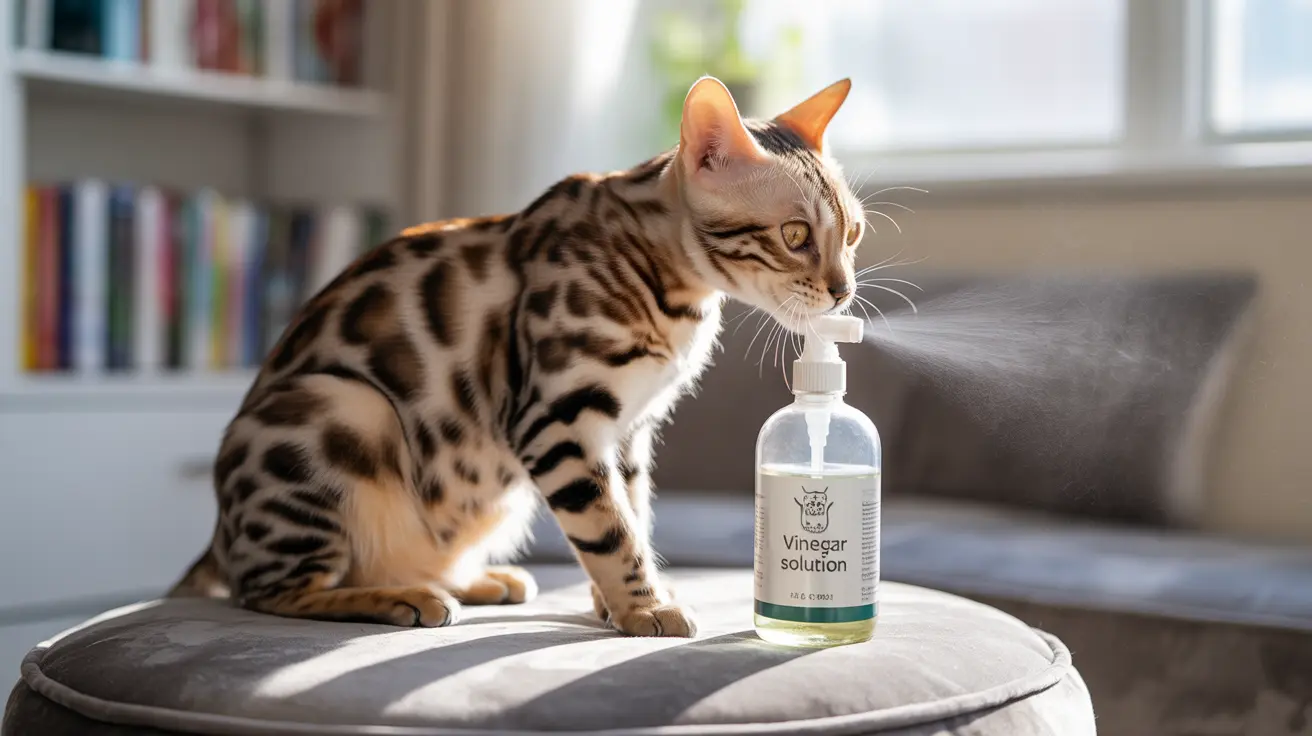Understanding Vinegar as a Cat Deterrent
For pet owners and gardeners struggling with unwanted cat toileting behaviors, vinegar presents a promising natural solution. Cats' highly developed sense of smell makes them particularly sensitive to strong odors like vinegar, potentially deterring them from marking or defecating in treated areas.
With approximately 200 million olfactory receptors (compared to humans' mere 5 million), cats find the sharp, acidic scent of vinegar particularly overwhelming. This natural aversion makes vinegar an attractive option for those seeking humane ways to protect their spaces from unwanted cat deposits.
How to Use Vinegar Effectively
Creating the Right Solution
The most effective vinegar solution for deterring cats is a mixture of one part white vinegar to two parts water. This dilution provides enough potency to repel cats while remaining safe for use around your home and garden.
For enhanced effectiveness, you can add a few drops of mild dish soap to help the solution adhere to surfaces better. Always use white vinegar or apple cider vinegar, as other varieties may attract unwanted pests.
Application Methods
There are several proven ways to apply vinegar as a cat deterrent:
- Spray bottle application around problem areas
- Soaked cotton balls placed strategically
- Direct application to soil borders or mulch
- Vinegar-soaked rags near entry points
Safe Usage and Precautions
While vinegar is generally safe, certain precautions ensure both effectiveness and safety:
- Always use diluted solutions indoors
- Avoid spraying near food bowls or litter boxes
- Keep vinegar away from cats' eyes, nose, and mouth
- Reapply after rain or heavy dew
- Test on a small area first to prevent damage to surfaces
Additional Deterrent Strategies
For maximum effectiveness, combine vinegar with other deterrent methods:
- Install motion-activated sprinklers
- Place citrus peels in problem areas
- Use commercial cat repellents
- Create physical barriers with rocks or chicken wire
- Plant cat-deterrent herbs like lavender or rosemary
Frequently Asked Questions
Does vinegar really stop cats from pooping inside the house or garden?
Yes, vinegar can effectively deter cats from pooping in unwanted areas due to their strong aversion to its scent. However, success rates vary depending on the individual cat and consistent application.
How do I safely use vinegar to deter cats from pooping indoors without harming them?
Mix one part vinegar with two parts water, and apply the solution to target areas using a spray bottle. Avoid direct contact with cats and ensure proper ventilation in indoor spaces.
What is the best way to apply vinegar as a cat repellent for unwanted toileting areas?
The most effective method is using a spray bottle with diluted vinegar solution, applying it daily to problem areas. You can also place vinegar-soaked cotton balls or rags strategically around these spots.
Are there limitations to using vinegar to stop cats from pooping, and what should I do if it doesn't work?
Some cats may be less sensitive to vinegar's smell, or the attraction to certain areas might outweigh the deterrent effect. If vinegar proves ineffective, consider combining it with other deterrents or consulting a veterinarian about possible behavioral issues.
Can vinegar be combined with other natural scents or methods to better prevent cats from pooping in my home or garden?
Yes, vinegar works well when combined with other natural deterrents like citrus peels, coffee grounds, or essential oils. Using multiple deterrent methods often provides better results than relying on vinegar alone.
Conclusion
While vinegar can be an effective deterrent for unwanted cat pooping, success depends on proper application and consistency. Remember that it works best as part of a comprehensive approach to managing cat behavior, potentially combined with other natural deterrents and positive reinforcement of desired toileting habits.






